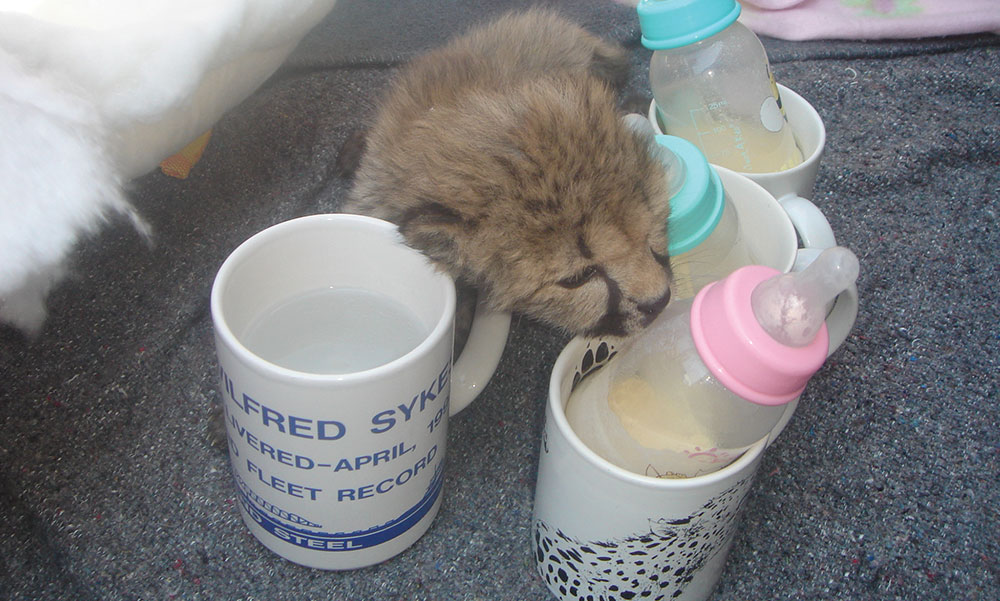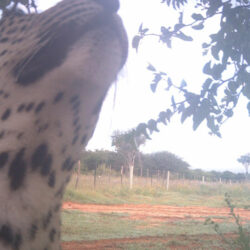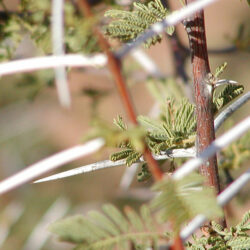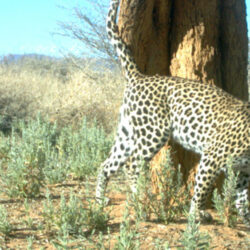Support CCF’s Efforts to Rehabilitate Orphaned Cheetahs
-

- by Anne Schmidt-Küntzel April 5, 2021

Cheetah Conservation Fund (CCF) works every day to bring forth our vision – a world in which cheetahs live and flourish in coexistence with people and the environment. Our efforts to save the species continue as we work to build our research, education, and conservation efforts across the species’ range. In 2020, with your overwhelming financial support, we were able to overcome the challenges presented by the pandemic. Now we need your help again this year as we work to keep cheetahs wild.
I joined CCF’s staff in 2008, becoming the Assistant Director for Animal Health and Research just two years later. In my time here, I have had the chance to work with experienced professionals from around the world. Additionally, CCF benefits from new generations of Namibians moving into the sciences and pursuing wildlife conservation and animal care as their career.
One thing we all have in common, besides a love of animals and the natural world, is our knowledge of the difficulties we face in this job. We all know there will be long nights and limited vacations. We all know that the rewards of our efforts, though very sweet, will be balanced out by great disappointments and inevitably we will all lose animals before their time. But, the reward of watching an orphaned or injured animal recuperate and grow into a healthy adult and to know that more cheetahs can live in the wild thanks to our efforts, helps keep our spirits up and reminds us what we work so hard to achieve.

Please donate to CCF and help us continue to make our vision a reality. The veterinary care we perform in Namibia and Somaliland, is also part of our research, education, and conservation efforts. CCF is the leader in building a greater understanding of the cheetah and its ecosystem. Accredited zoos use CCF’s research to create and manage responsible breeding programs for the cheetah. Thanks to your support, our research and conservation efforts helps to inform partners around the world, who are helping to raise funds and awareness for the plight of the cheetah in the wild.
Because of our shared love of animals, we do get quite attached to individuals especially when they come to us at a very young age.
A group of two-day old cheetahs were brought to CCF in August 2008, shortly after my arrival. A rural farmer shot their mother because he perceived her as a threat to his livestock. Their eyes were still closed, and we were told that in an act of sympathy the farmer had cut them from their mother’s womb. Based on their developmental state, the cubs were not premature and were probably just about to be born when their mother was killed.


The cubs were named Soraya, Quasar and Phoenix. Because they were so young and required constant care, me, CCF’s Founder and Executive Director, Dr. Laurie Marker, and another keeper, became “foster moms”. Quasar was my charge, but of course we took care of the three cubs collectively. We grew more and more attached to the cubs and more and more exhausted every day. While we were saddened to know that they would not be able to be released again, it was incredibly rewarding watching them grow stronger.

Most of the wild cheetahs we see at our Centre in Namibia are captured by farmers and their ages vary. Some, like Phoenix and his siblings, will require a lifetime of care since they lack the skills necessary to survive on their own in the wild and are too attached to humans. Others are old enough and can be immediately released after a quick veterinary work-up. In contrast, almost all of the cheetahs at our Safe House in Somaliland are in very poor condition; they are very young cubs confiscated from people who intended to sell them illegally as pets; they are always malnourished, infested with parasites, and tend to have a variety of health issues.
In September 2018, Feather came to our Cheetah Safe House. Like Phoenix, Feather was taken from the wild by farmers trying to protect their livestock. Feather was confiscated by the Somaliland Ministry of Environment and Rural Development (MoERD) and brought to CCF. Because Feather was very young and in poor health, she needed specialized care so, Dr. Marker, immediately traveled to Somaliland, to help care for Feather and the other cubs which were confiscated with her.

Dr. Marker spent weeks in quarantine with Feather. She provided around the clock care, only leaving that one room to conduct meetings with local officials to discuss the best strategies to combat the illegal trade. Returning to quarantine, she faced an uphill battle in keeping a very sick and tiny cheetah alive. After hours and days of dedicated care, she succeeded in nursing Feather back to health.
Phoenix and Feather would have lived very different lives in the wild. In Phoenix’s case, his life would certainly have been more difficult and dangerous than with us. But he would have been a free and wild cheetah – mating, hunting and fighting for the best territory. Feather could have raised multiple litters of cubs and ranged over the landscape, going where she pleased.
Unfortunately, at the beginning of this year, both Phoenix and Feather passed away. Phoenix lived a healthy life in our care, and eventually died from the effects of kidney disease, a very common condition in aging captive cats. Most cheetahs in the wild wouldn’t live long enough to develop kidney disease. Feather was sick on arrival and struggled with various health issues throughout her short life. Like many other rescue cubs in Somaliland, she had contracted feline coronavirus, which can develop into Feline Infectious Peritonitis (FIP) a devastating disease for cheetahs. If Feather had been left in the wild, she would not have been exposed to the diseases caused by the poor hygiene and high stress the cubs are exposed to while being smuggled in the illegal wildlife trade. We kept her as healthy and happy as we could for as long as we could. Ultimately, loss of freedom, disease and a short life is the fate of many rescue cubs, which is why it is so important to stop the illegal pet trade.
As long as the cheetah continues to be threatened by habitat loss, human-wildlife conflict and illegal wildlife/pet trade we will continue to be called to intervene for injured and orphaned cheetahs. Our animal care team stands ready to provide the best veterinary care possible for cheetahs that come into our care. Your support today will help us to mitigate the threats rangewide and, keep cheetahs in the wild where they belong.




